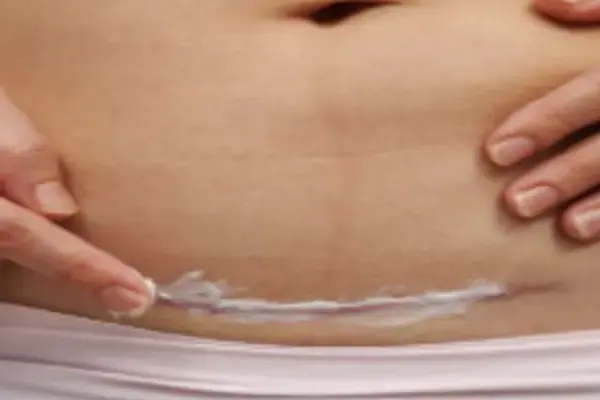Healing After Birth: A Physiotherapist’s Guide to Postpartum Recovery
- Sangeeta Sharda
- Sep 8, 2025
- 3 min read

Becoming a mum is incredible but also demanding, physically and mentally. Your body has just left its comfort zone and endured one of the most intense physical experiences it will ever face. It’s perfectly normal to feel weak, fatigued or “off” as you navigate life after birth. Just like a serious injury, childbirth, whether vaginal or via caesarean, warrants a thoughtful rehab process. That’s where pelvic floor physiotherapy comes in: a gentle, guided way to support your healing, restore strength, and rebuild confidence in your body. At Praxis Rehab, our women’s health physiotherapist Sangeeta Sharda is here to help mums take those first supported steps towards recovery.
Why Physiotherapy After Childbirth Matters
Most new mums aren’t taught to treat postpartum recovery like rehabilitating an injury but they probably should. Without proper care, early movement can lead to lingering pelvic floor issues, poor posture, or leakage.
Physiotherapy after childbirth offers:
Safety and confidence to move again
Guidance to reconnect your pelvic floor and core
Personalised pacing based on your birth experience
Prevention of long-term issues like prolapse, pain or incontinence
Praxis Rehab’s team specialises in women’s pelvic floor physio Belair, offering care designed to help you thrive not just function.
Key Elements of Postpartum Healing
Gentle Activation in the Early Days
It starts with awareness: learning to breathe effectively, engage core and pelvic floor muscles, and move with intention even lying down or sitting.
Pelvic Floor & Core Reconnection
Whether you have a tear, diastasis recti, or a C‑section, your pelvic and core muscles can feel “out of sync.” Pelvic floor therapy retrains these systems for stability, bladder support and better everyday comfort.

Posture & Movement Alignment
With uneven load from feeding, lifting and caring, posture can rapidly decline. We use exercises to support neutral alignment and counteract strain in your back, pelvis and neck.
Gradual Progression
Recovery isn’t about bouncing back fast, it's about pacing. Build from zero-impact movement to low-impact walking and eventually full strength training over several months.
Mental & Emotional Support
Movement increases mood. Physiotherapy that tunes to your pace can reduce postpartum anxiety and help prevent physical and emotional overwhelm.
What to Expect in Your First Appointment
At your first visit, you’ll get:
A warm and open chat about your birth story, symptoms, goals and concerns
An assessment of pelvic floor function, breathing patterns, posture and movement
A personalised plan including early movement, core reconnection and pelvic stability
Practical take-away exercises and advice to start healing at home
Ongoing guidance in a safe space with your comfort as the priority
Most clients begin to feel subtle progress within the first 2–3 sessions.
Real-Life Benefits You’re Likely to Notice
Reduced leakage and pelvic heaviness
Improved ability to lift baby or toddlers with confidence
Better posture for feeding and caring tasks
Less lower back and pelvic girdle pain
Gradual reconnection to pre-pregnancy activities
These changes don’t just impact your body, they make your days feel more manageable and grounded again.
Ready to feel more like yourself again?
Looking for a physiotherapist near me in Belair? We’ve got you covered.
Let’s talk. Book an appointment with Sangeeta, our pelvic health physiotherapist.
You’ll find us in trusted medical centres:
Integrative Health Solutions, Belair on Tuesdays – 10am-2pm
Why Praxis Rehab Should Be Your First Step
Convenient clinics in Belair, within trusted Adelaide health centres
A team experienced in postpartum recovery physiotherapy, including pelvic floor support and strength rebuilding
Care that respects pace, privacy and real-life demands
Evidence-based rehab practices aligned with women’s health physiotherapy standards
Flexible scheduling and telehealth check-ins to fit busy mums
Sample 4‑Week Starter Plan
Week 1: Pelvic and breath awareness (gentle pelvic tilts, diaphragmatic breathing, sitting alignment) Week 2: Core engagement (neck lifts while lying, heel slides), pelvic floor activations Week 3: Add low-impact strength (bodyweight squats, bridges) and mindful posture re-set Throughout Week 4: Safe integration into walking, upper-body work, progressive load, while reviewing technique
Final Thoughts:
Your body carried, grew, and delivered life now it's time to treat it with respect. Even small, mindful movement and expert guidance can drastically improve how you feel and function during this postpartum season. You deserve to feel strong, steady, and supported in your recovery. At Praxis Rehab, we're here to walk beside you from your first gentle activation to feeling truly yourself again. If you’ve been searching for women’s pelvic floor physio, start with us. Let’s help you build your base so everything after birth becomes more joyful, sustainable, and powerful.
References:
Hayman, M., Thornton, L., O’Hara, B., et al. (2023). Public health guidelines for physical activity during pregnancy from around the world: A scoping review. British Journal of Sports Medicine, 57(14), 940–949. https://doi.org/10.1136/bjsports-2022-106216




Comments